Market
BJIFF TALENTS—Birth of a Short Film
On February 18, 2021, five excellent young Chinese filmmakers were officially selected into this year’s BJIFF TALENTS from 227 effective applicants at home and abroad after the review of five producers in the second round for the inaugural BJIFF TALENTS of the 11th Beijing International Film Festival (BJIFF).
After four months of intense production, the first BJIFF TALENTS has borne early results. With the cooperation among senior producers and young directors, a multitude of outstanding Chinese-language short films are being incubated at a steady pace. Rights after the second round review of the BJIFF TALENTS, Chen Jie, Founding Partner of Easy Entertainment and CEO of Easy Production, engaged herself in the training and guidance for the students in the BJIFF TALENTS.
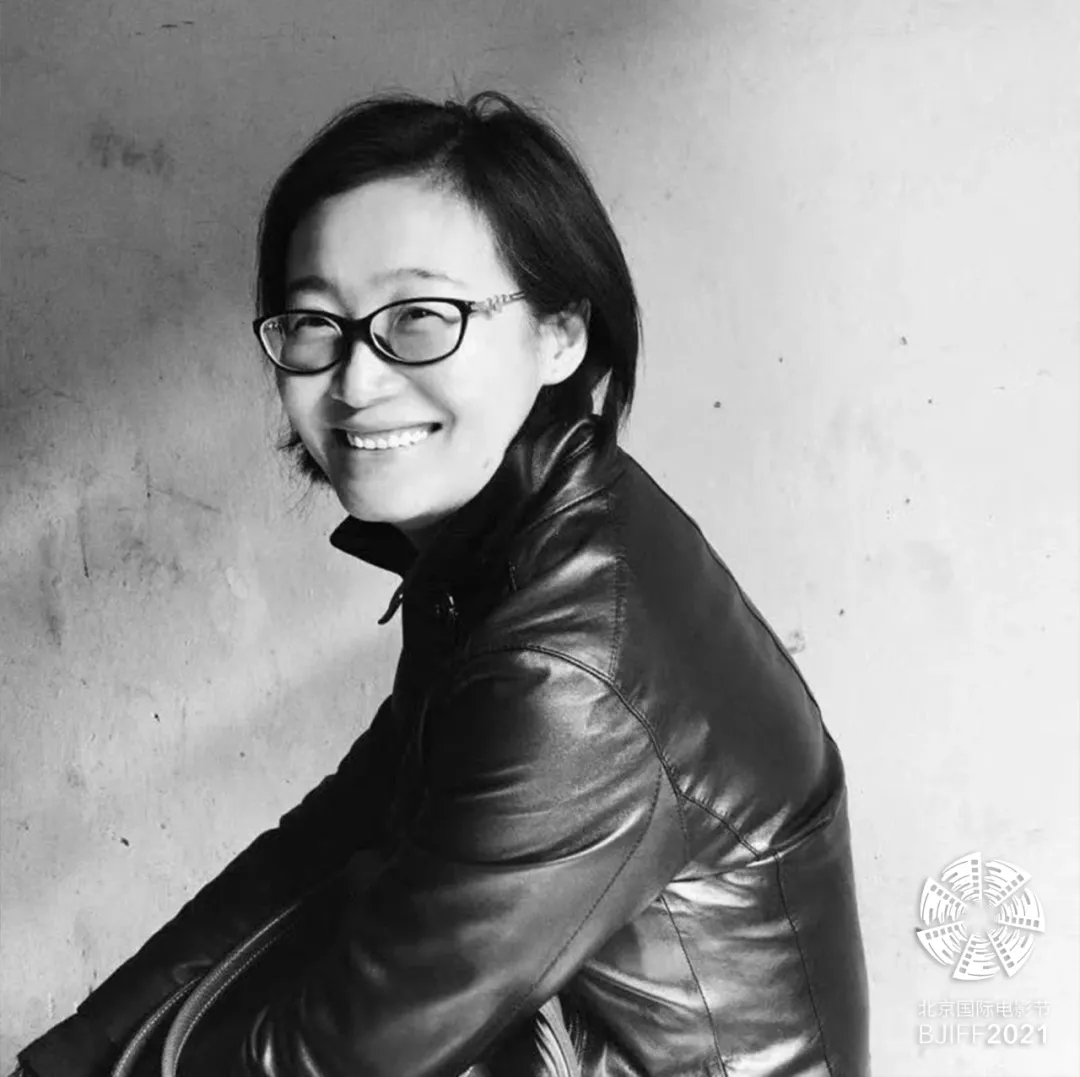
▲ Chen Jie, Producer
Her major representatives (planner/executive producer/producer): Lost, Found, Go Away Mr. Tumor, Chongqing Hot Pot, When Larry Met Mary, Finding Mr. Right and First Time, etc.
Embedding such a mix of senior producer and young director into a short film project that operates in a short timeframe often means adaptation and meeting of minds. How should creators make trade-offs between production experience gained by trial and error and enthusiastic artistic ideal?
That is the case with Chen Jie and Huang Xiaopeng’s short film project Tiger Carmen, which encountered a lot of difficulties, problems and bottlenecks during the production process. The production team took positive measures to address them to advance the project, and finally completed the production within the prescribed time limit.
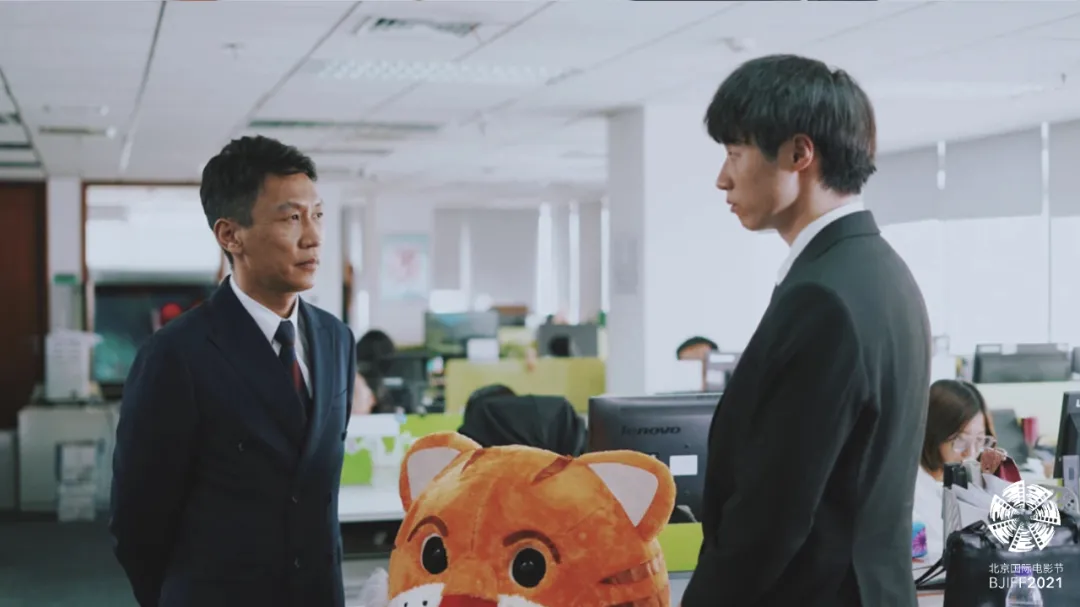
▲Short film Tiger Carmen
From Chen's job record, we can get a glimpse of the working status of young filmmakers in 114 days, as well as the creative atmosphere and environment of the first BJIFF TALENTS. The professionalism demonstrated by the creative team is also a reflection of the BJIFF TALENTS' fervent concern to young filmmakers and its determination to develop the Chinese-language film industry.
Through the platform of the BJIFF TALENTS, young directors are able to showcase their creative abilities while being backed up by senior producers. Paired with Chen is Huang Xiaopeng, who received a master's degree in film & TV and digital media art from Academy of Film, Hong Kong Baptist University. The two hit it off and are welcoming the arrival of creative work.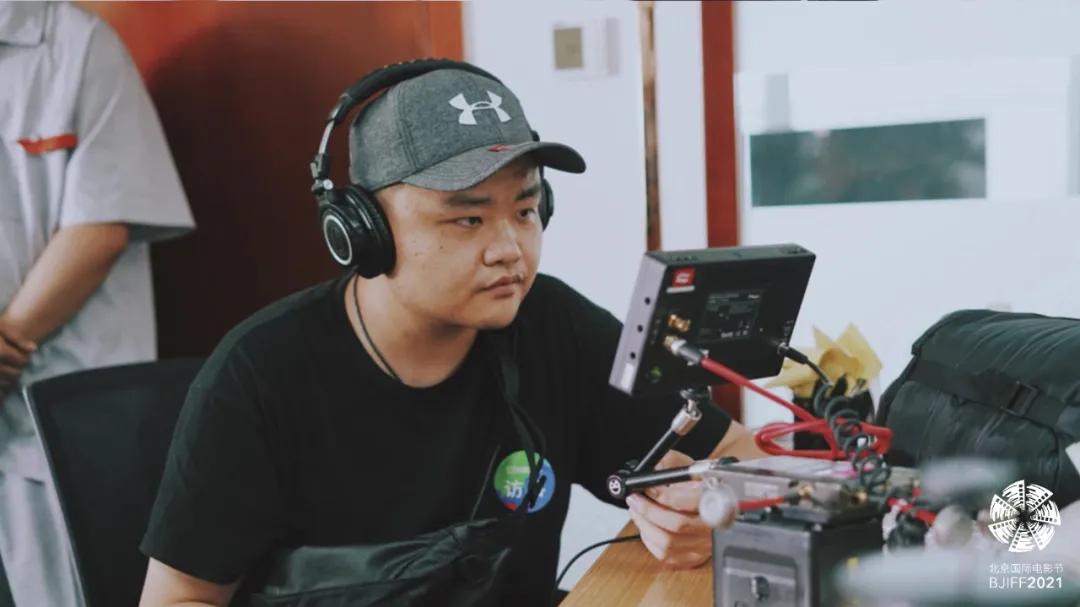

▲ Director Huang Xiaopeng
[Excerpts from Chen's job record]
February 27
In the process of picking each other between 5 producers and 11 directors, director Huang Xiaopeng and I clicked with each other to make up a team.
March 15 through March 25
I tried to understand the director's style and personality, and reached a consensus on the creative goals—shooting a youth genre film which is liked by and the most suitable for the director and can express his wishes.
How to work: The director reports a creative scope related to the theme by himself, and the producers advise on the director’s proposal.
In the stories young creators hope to tell there is always a trace of idealization, but how to achieve a balance between art and the market entails the result of communication between the producer and the director. Starting on March 25, the preliminary planning of the short film was officially launched, which also means that heated discussions about the direction of creation between the producer and the director are about to kick off.
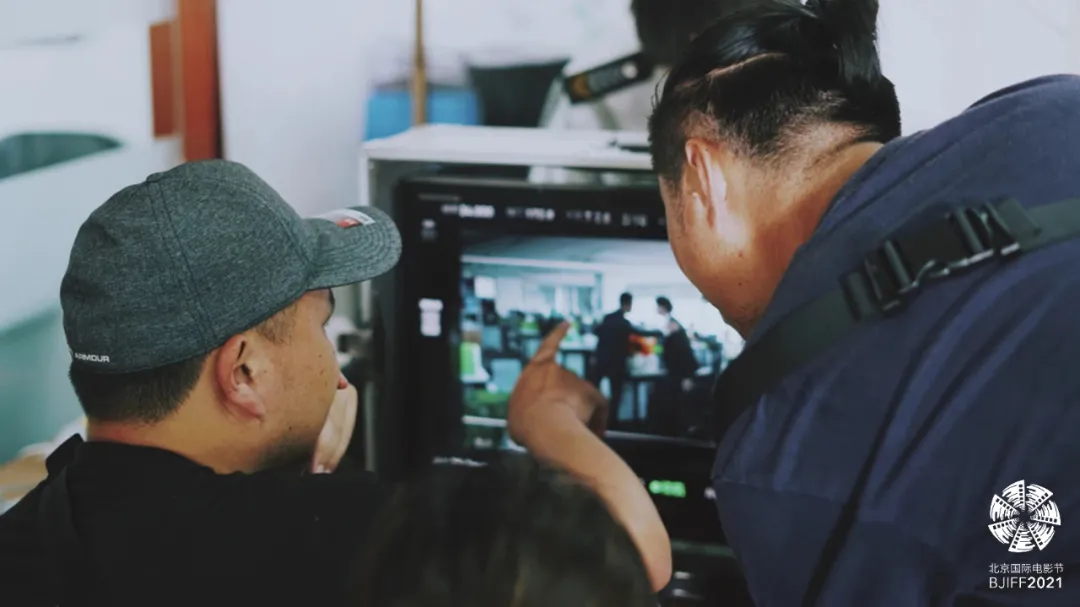
The first thing to do was to choose a suitable story and creative proposal:
[Excerpts from Chen's job record]
March 25 through April 3
*Director:
Centering around the theme of "recovery", three proposals were submitted, among which the story of a speed skating girl was the director's favorite involving a relatively long physical time.
*Producer feedback:
What matters most for a short film is to properly schedule the psychological time for the story within the limited physical time, that is, it is necessary to make the protagonist in the story have a strong dramatic tension. Considering that the director prefers youth film, the producer recommended introducing stressful physical time like a ten-minute break between classes.
*Director:
Based on this, the first relatively complete proposal was submitted: a story of a good student who tries to cheat after the last monthly exam during her study in high school.
*Producer feedback:
There is a basic story line, but the core driving line for the protagonist is a little bit scattered; The contradictory climax is not addressed by the protagonist, leading up to an unsatisfactory effect. In addition, the story is lack of twists and turns or contingencies.
April 5 and 6
The director submitted the synopsis of The Home of Mind—a story about a bad student whose spiritual consciousness is awakened by his teacher.
Regarding the core problem in this story, that is, there is no effective dramatic relationship between the two protagonists, the producer proposed a solution.
*List of play-related books recommended by the producer to the director: The Anatomy of Story: 22 Steps to Becoming a Master Storyteller, Creating Unforgettable Characters, The Moral Premise: Harnessing Virtue & Vice For Box Office Success, Theory on Script Structure, Save the Cat! and Play.
April 11
Determination with the director: this short film was further created and produced based on the story of Tiger Carmen, and the technical standards and budgeting for the short film were clarified again.
The executive producer began to understand and communicate on the director's creative habits and main creative resources. Combined with the timetable of the organizing committee, a work plan was made.
After repeated discussions with the producer, the outline of the project was finalized. In response to various issues, the director successfully entered the next step for optimization in the end.
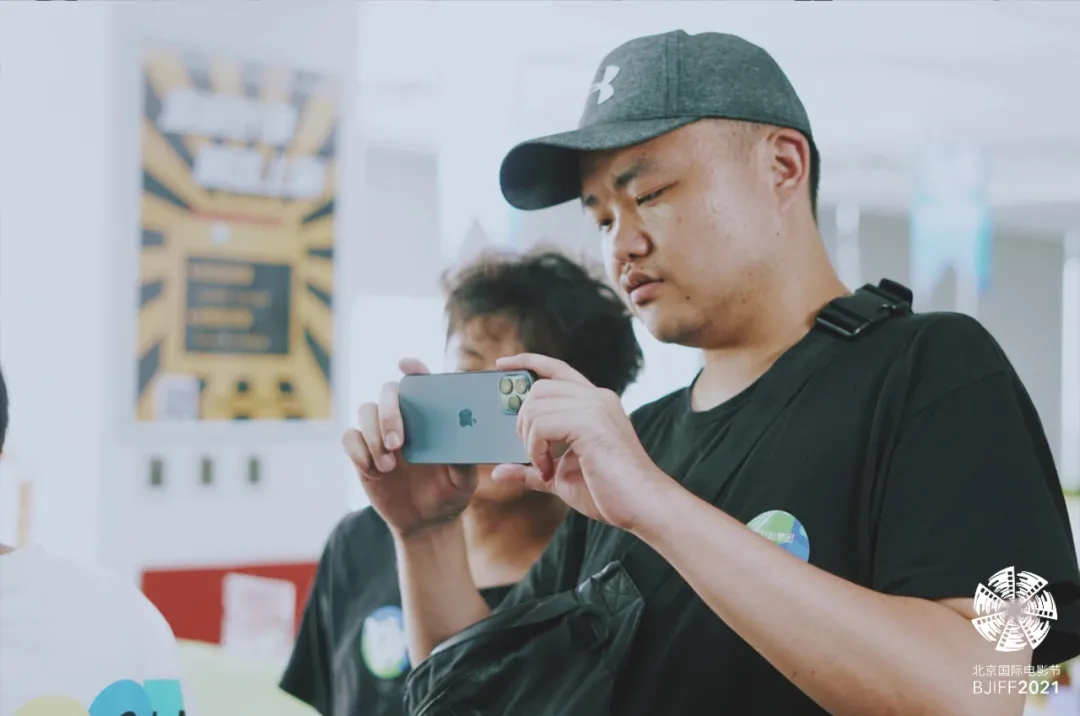
After the beginning of pre-production, the creation of the short film went deeper and the meeting of minds became increasingly intense. On April 12, or 44 days later since the assembly of the team, the project entered the most anxious story development stage. During the 3-day training period arranged by the BJIFF Organizing Committee, many production problems were solved through in-person communication, and the production of the short film was finally able to continue:
【[Excerpts from Chen's job record]
April 12 through April 30
At this stage, the director was extremely anxious because of the selection and development of the story. The following problems were solved through face-to-face communication only after he came to Beijing and participated in the 3-day training arranged by the organizing committee, which I also attended for 2 days:
1. The appeal was determined by participating in the BJIFF TALENTS: personal expression and ability display;
2. In the communication with the organizing committee’s consultants, the director's personal aesthetic tendency in theatricality was made more clear;
3. As a producer, I also corrected my mentality – the need to focus on support, service and guidance while being curious about the director’s creative pursuit and the audience’s feedback;
4. Executive producer Peng Yimeng returned to the short film project after the shooting of a film she produced wrapped, and I made clear with her the production goal of this short film. We completed the basic composition of the production team: Liu Qiran, Chen Xiaotong, Zhang Meng and Zhang Qiwen.
May 1 through May 14
The core work at this stage is:
1. A deeper understanding of director Huang Xiaopeng was had: cooperation is not only about professional interactions, but personal interactions;
2. Based on the needs of the scenes, the production team investigated shooting locations in Guangzhou and Shenzhen;
3. The script was still in the critical period of writing. The director needed to think more clearly about what he wanted to express.
May 15 through May 30
For version 2.1 of the script, a script conference call was held with the director. And on the premise of respecting the director’s loyalty to the theatricality and expression he personally prefers in this creation, he was reminded and suggested from the perspectives of enriching roles, shooting possibilities and completeness as possible.
At the same time, the priorities during this period include:
1. The cast list was finalized;
2. The shooting of the short film was originally scheduled to start on June 5, but due to the unexpected outbreak of COVID-19, the production team needed to monitor the progress every day;
3. Professional still photographers were arranged to join the project;
4. Negotiation with XINYILIAN was conducted to support poster design;
5. On May 17, the first project news was released.
May 30 through June 9
In view of the pandemic situation in Guangzhou, I reached a consensus with the director on the evening of May 30 to change the shooting location to Beijing. On June 4, the chief director-centered director group of 5 people, the male and female protagonists and the production team were convened to have a dinner to get to know and encourage each other before the filming officially started.
The priorities at this stage are:
1. Negotiate free shooting locations in Beijing;
2. Negotiate meal sponsorship;
3. Determine main roles;
4. Negotiate a professional studio;
5. Fitting, trial fit-up, poster shooting;
6. On the evening of June 9 (the day before shooting), a pep rally for the whole staff was carried out.
In a tense preparation period, it is inevitable to run into a brick wall. After adaption and emergencies, the production team finally completed the final planning and arrangement—which means that the shooting stage at the most core of the short film production was about to come.
In the period of adaption, meeting of minds and a low ebb, all the preliminary work was ready. The short film officially started shooting on June 10. And the producer, the director and other members of the production team worked together to make a steady shooting.
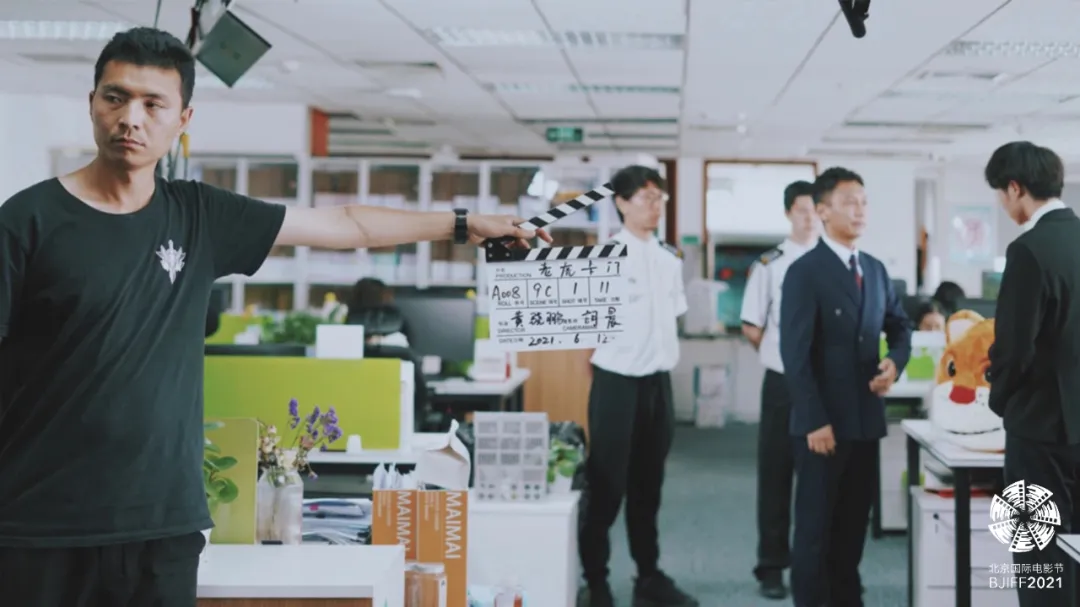
▲ The Tiger Carmen set
[Excerpts from Chen's job record]
June 10 through June 15
On June 13 and 14, after 32 hours of around-the-clock shooting for the major shooting group, the shooting of the short film was officially completed on Jun 14 at 3 PM. Since the equipment sponsored by the organizing committee was returned, some of the missing shots were finished through the equipment borrowed by the director in person on June 14 and 15, marking that the whole shooting finally ended.
During the filming period, the the communication and consensus with the director is on the following core issues:
1. Go by a rule book and respect the consensus on the cycle and budgeting;
2. The director is the spiritual core of the cast and crew and should mobilize the whole crew in due course and encourage all of them to continue support;
3. There was a lack of a strong site producer to coordinate and follow up with other departments of the crew;
4. Communicated and clarified the post-production plan, and specially remind the work of the editing and music parts;
5. The greatest gain of the director's personal review is: preparing the story and shooting proposal within the budget.
During the shooting period, the communication consensus with the production team includes:
1. Emphasize clear on-site division of labor, and assign responsibilities to individuals;
2. Focus on the living security of the whole crew;
3. Do a good job of serving key actors in a peer-to-peer manner;
4. Make shooting arrangements with the director team, and emphasize the in-budget concept;
5. Key milestones, such as arrangements for the beginning and finishing of shooting and material exposure.
June 21
The production team was organized for review offline.
So far, after 114 days of hard work and coordinated progress, Tiger Carmen was born experiencing a process from the initial idea to the finalized short film.
With the upsurge of the film, Tiger Carmen will soon be premiered at the 11th BJIFF. You should never miss this short film produced with good faith, which was born at the BJIFF and great efforts have been made to help put on the big screen.
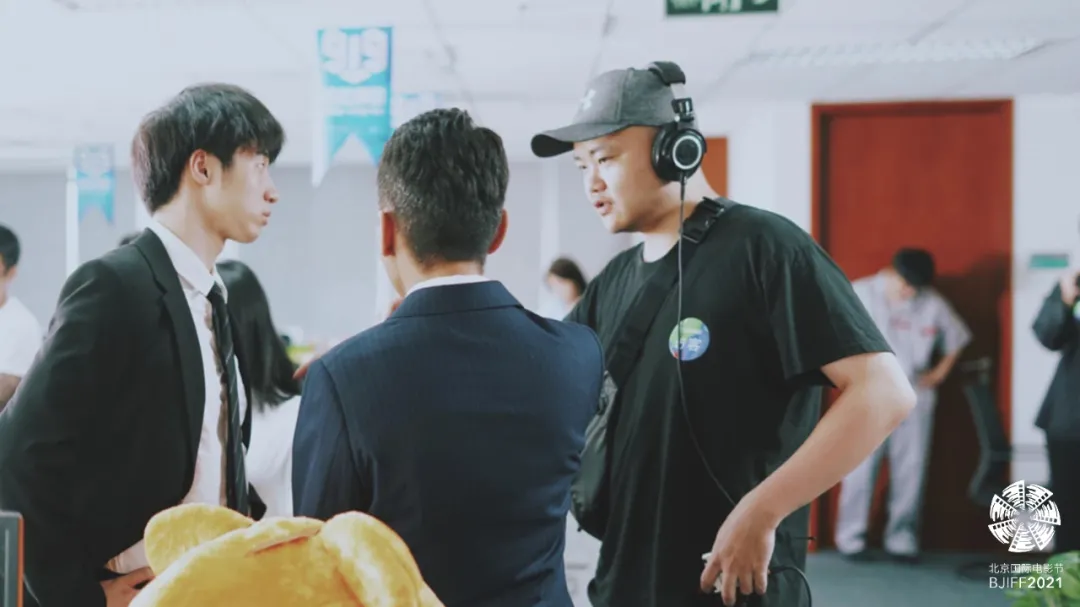
In this way, on the stage of the BJIFF TALENTS, another young filmmaker's film dream has found its way home. Here, he convey his own attitude with images, think with a story, and records passion with lenses. At the same time, every member of the production team has also seen valuable growth in the professional production process. Through practical actions, the BJIFF TALENTS paves the stepping stones for the future of Chinese-language films.
From script writing, on-location efforts, standardized post-production to film premiere, the BJIFF TALENTS provides young filmmakers with a professional test field, allowing their dreams to take root, their technology to be practiced, and their stories to be told.
The production of Tiger Carmen is a good example of the BJIFF TALENTS combining professionalism and practice, but it is by no means an exception. The high-speed train of the BJIFF is driving into the future carrying the dreams of Chinese-speaking filmmakers!
